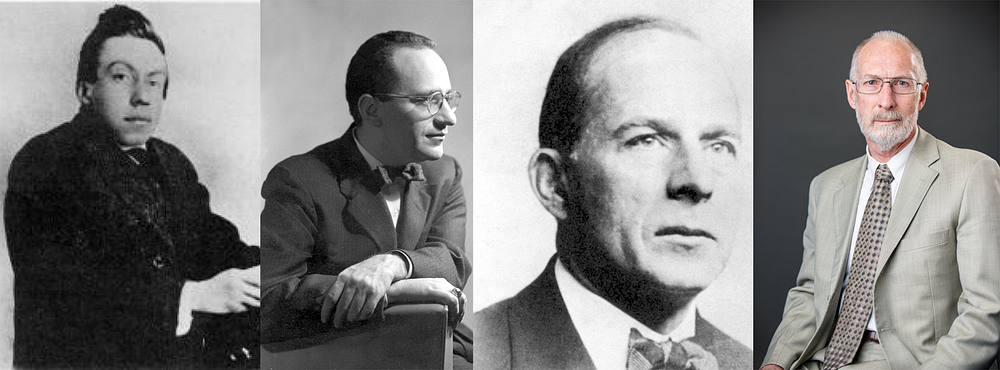Sweden: Looting, Cars Torched, Police Attacked as Riots Break out in Migrant Suburb
Sweden: Looting, Cars Torched, Police Attacked as Riots Break out in Migrant Suburb

YOUTUBE
Riots broke out on Monday night in the suburb of Rinkeby, where a majority of residents were born overseas, just hours after the country’s Prime Minister attacked U.S President Donald J. Trump for linking mass migration with rising violence in Sweden.
The riots, in which cars were set ablaze and shops were looted, resulted in the Stockholm suburb looking “like a warzone” according to a journalist who was at the scene.
Video
Is Pluto a Planet?
EXCLUSIVE: Lawmakers to Request Probe of $418M Arms Sale to Kenya on Obama’s Last Day
EXCLUSIVE: Lawmakers to Request Probe of $418M Arms Sale to Kenya on Obama’s Last Day

Reuters
A group of lawmakers is planning to request a congressional investigation of a $418 million U.S. weapons sale to Kenya approved by the Obama administration on its last day in office.
The sale, approved by the State Department and privately notified to Congress on January 19, would allow Kenya to buy 14 weaponized crop-duster-like planes — including two trainer planes and services, for missions against terrorist group al-Shabaab.The deal was publicly announced the Monday after Trump’s inauguration.
A handful of lawmakers, led by Rep. Ted Budd (R-NC), are questioning why the contract to produce the planes was awarded to major defense firm L3 Technologies — which has never produced such a plane — while a smaller, disabled veteran-owned company in North Carolina that already make those planes at a lower cost was not considered.
MILO Resigns from Breitbart News
MILO Resigns from Breitbart News

Facebook / Milo Yiannopoulos
Milo Yiannopoulos announced at a Tuesday New York City press conference his decision to resign as Breitbart Tech editor.
“Breitbart News has stood by me when others caved,” said Yiannopoulos. “They have allowed me to carry conservative and libertarian ideas to communities that would otherwise never have heard them. They have been a significant factor in my success. I’m grateful for that freedom and for the friendships I forged there.”Milo continued: “I would be wrong to allow my poor choice of words to detract from my colleagues’ important reporting, so today I am resigning from Breitbart, effective immediately. This decision is mine alone.”
Pope Francis: Rejection of Migrants Stoked by ‘Populist Rhetoric’
Pope Francis: Rejection of Migrants Stoked by ‘Populist Rhetoric’

Getty
Pope Francis has urged Christians to a change in attitude regarding immigration, because failing to welcome migrants is rooted in selfishness and fueled by “populist rhetoric.”
Speaking to participants in a conference on “Migration and Peace” in the Vatican Tuesday, Francis said that “accessible and secure humanitarian channels” are needed for migrants fleeing from “conflicts and terrible persecutions.”“More widespread programs of welcome,” he said, “seem to favor a personal encounter and allow for greater quality of service and increased guarantees of success.”
On the same day, the President of the European Parliament, Antonio Tajani warned that if Africa’s problems of drought and malnutrition are not dealt with quickly and effectively, “we will have millions and millions of Africans” pushing to enter Europe and dams and walls will not be sufficient to hold them back.
What Is Breitbart?

A look at the website that wants to ‘bitch slap’ the GOP.
Welcome to the Glad You Asked series, a shame-free zone where we tackle topics you’re too embarrassed to ask even your BFF about. Don’t worry, we gotchu.
On
Tuesday, far-right provocateur Milo Yiannopoulos resigned from his
editor position at Breitbart News after a conservative blog unearthed video
of him saying that there are certain merits to pedophilia. “I would be
wrong to allow my poor choice of words to detract from my colleagues’
important reporting,” he said in a statement. “So today I am resigning
from Breitbart, effective immediately.”
Yiannopoulos
and Breitbart have been in the news a lot recently, and this
resignation is bound to keep their names trending on Twitter for some
time — so we decided it’s time to explain exactly what Breitbart is and
why you should care.
Breitbart’s Beginnings
Breitbart is a far-right media company that defines itself
as a “conservative news and opinion website” with 45 million readers a
month. It is, far and away, the most popular conservative news outlet in
America. Since getting its start in 2007, Breitbart has forced government officials and congressman from office, brought liberal non-profit groups to their knees, given a platform to America’s most hateful groups and helped get Trump elected to the most powerful office in the Western world.
Toward a Theory of Peace
As the Keystone of Liberty

Peace
is the keystone of liberty and prosperity. To completely understand
why, it will be important to develop a theory of peace.
Most
arguments against war at least partially rely on empirical evidence.
Anti-war literature tends to draw from past calamitous consequences of
foreign interventionism. Here I will endeavor to make the case for peace
using only theoretical incentive analysis.
Extensive
literature already exists discussing the theoretical case for liberty.
This gives us a head start in developing a theory of peace, since peace
is a constituent part of liberty. Thus, peace is ideal for the same
basic reasons that liberty is.
The Bill Gates “Robot Tax” is as quaint as it is wrong
Kevin Zimmerman
I
don’t often claim to know better than modern-day genius Bill Gates, but
as a student of both accounting and economics with a masters in
taxation, when I heard that Gates had proposed taxing
robots in order to protect workers who might be displaced by
automation, I immediately knew that would be a bad idea. The idea is
cute, really. Robots take our jobs, so why don’t they take our taxes?
The answer, like a lot in the world tax, lies in the weeds.
First, let’s set aside the historical understanding in economics that robots — and technology in general — don’t steal
humans’ jobs. To the average reader this may seem like heresy, but the
majority of economists hold that technology does not destroy jobs, it
merely shifts laborers into better jobs.
(Sewing machines may have drastically shrunk the number of seamsters
and seamstresses, but those individuals are now free to become nurses
and chefs.) To think that technology permanently destroys employment
opportunity, as Bill Gates suggests here, actually has a name: The Luddite Fallacy, named for a group of textile workers in the 19th century who opposed weaving machinery. Now the term Luddite is colloquially used as anyone who opposes technological progress. Ironic, that Bill Gates has suddenly become its poster child.
Catholics Don't Have To Be Commies
 If all you knew about Christianity and economics were drawn from Pope Francis' comments, you'd doubtless be deeply confused.
This pope certainly does seem to mistake the Gospel's call for
voluntary charity and unworldiness with an ideological program for the
forced redistribution of wealth. His ecological encyclical urged
governments to band together and assault private property through
multinational conspiracies – oops, I meant “organizations” – such as the
United Nations.
If all you knew about Christianity and economics were drawn from Pope Francis' comments, you'd doubtless be deeply confused.
This pope certainly does seem to mistake the Gospel's call for
voluntary charity and unworldiness with an ideological program for the
forced redistribution of wealth. His ecological encyclical urged
governments to band together and assault private property through
multinational conspiracies – oops, I meant “organizations” – such as the
United Nations.And some Catholics are listening. There's a new – and unnervingly popular – hard-left movement among disgruntled, “orthodox” Catholic Millennials who resent having to leave school and look for a job. That movement now has a manifesto. It calls itself “Tradinista,” mashing together (as if they were remotely compatible) “traditional” Catholicism with Sandinista economics and politics. You'll see this new movement recommended in the once-free market First Things magazine, earnestly discussed by Ross Douthat of the New York Times, and tweeted about incessantly by 20-somethings from the depths of their parents' basements.
I was so appalled by the economic and moral illiteracy that passes for “Catholic social teaching” these days, both in Rome and on social media, that I wrote an entire book devoted to debunking these misconceptions: The Politically Incorrect Guide to Catholicism. Below is an excerpt from the chapter on economics:
Donald Trump’s Paths to War

A U.S. Army Stryker vehicle after an IED blast in Iraq in 2007. Via Wikimedia Commons.
Donald Trump’s Paths to War
Ever since it became clear Donald Trump had a shot at winning the presidency, there has been speculation about the type of foreign policy he might bring to the White House with him. Much of this speculation has centered on questions of war and peace. While there has been some—not entirely in jest—concern about how Trump might respond to a mean tweet once he had control of the nuclear codes, commentators like neoconservative columnist Charles Krauthammer, were concerned that the “America First” foreign policy Trump put forth on the campaign trail may foreshadow a greater reticence to use military force.
A Tale of Two Moralities, Part One: Regional Inequality and Moral Polarization

Downtown Sutton, West Virginia
A Tale of Two Moralities, Part One: Regional Inequality and Moral Polarization
The United States is not very united.
Americans have been sorting themselves along ideological lines into like-minded regions of the country, increasing polarization in congressional voting patterns, and creating a striking division in political preference and party loyalty between city-dwellers and the denizens of low-density exurban and rural counties.
That’s how Hillary Clinton managed to lose the Electoral College vote to Donald Trump despite beating his overall vote total by nearly three million votes. There are more Democratic voters, but they are densely concentrated in a handful of Democrat-heavy cities and states, while Republicans are spread relatively thinly but evenly across the country’s non-urban expanse.
Here’s a useful illustration of the pattern from Robert Vanderbei, a Princeton mathematician and operations research expert:
The Free Society Is an Open Society

The Free Society Is an Open Society
“He has endeavoured to prevent the population of these States; for that purpose obstructing the Laws for Naturalization of Foreigners; refusing to pass others to encourage their migrations hither…” — Declaration of Independence
“Mister Gorbachev, tear down this wall.” — Ronald Reagan, June 12, 1987
—
In my previous essays between the election and the inauguration, I discussed how we got here, and how we didn’t, as well as what’s distinctively worrying about the new style of politics. In the first week of the new administration, it’s worth noting that we saw an outpouring of an identity-based politics of protest against rising illiberalism and misogyny, an extraordinary level of public untruth repeated by a spokesman who showed signs of not believing what he was saying but being forced into it, and the continued surrender of Republican elites to the new order.
Thinking About Libertarian Foreign Policy

Via Wikimedia
Thinking About Libertarian Foreign Policy
The 2016 election did not provide much hope for libertarians. Yet some libertarians oddly found President Donald Trump’s foreign policy pronouncements to be a silver lining on an otherwise dark cloud. Democratic Party nominee Hillary Clinton represented, in many ways, the worst possible candidate from a libertarian perspective—a nanny state liberal domestically and a hawkish interventionist internationally—which led some libertarians to see Trump as the lesser of two evils. Sure, his candidacy was built on protectionism and anti-immigrant sentiments—and he also called for bringing back waterboarding as an interrogation practice and massively expanding military operations against the Islamic State—but his denigration of nation-building and America’s military alliances warmed some libertarian hearts.
I would like to use this post to provide some preliminary thoughts on libertarian foreign policy that are part of a larger project the Niskanen Center will be launching in the near future. And to start, I want to lay out a basic premise:
Expect More DACA Beneficiary Deportations Under Conflicting Executive Policies

Expect More DACA Beneficiary Deportations Under Conflicting Executive Policies
Last Friday, Immigration and Customs Enforcement (ICE) officials placed Daniel Ramirez Medina in custody in Tacoma, Washington. According to the agents who questioned Mr. Ramirez, ICE intended to detain and deport him “because he was not born in this country.”
Mr. Ramirez is the first individual with twice-granted Deferred Action for Childhood Arrivals (DACA) status to be arrested in the United States, and subject to removal. His arrest highlights two major conflicts in U.S. immigration law and policy.
First, is undocumented presence criminal?
Time to Slash the Red Tape Tying Down the Economy

40 years of command-and-control regimes have led to massive, ineffective, and unaccountable bureaucracies.
Activists were positively apoplectic, of course, and media ridicule was swift. But exaggerated as the comment was, the larger point is incontrovertible: The unparalleled expansion of the administrative state is crushing America’s entrepreneurial spirit, productivity, and economic growth.
Monday was not the first time Trump stressed the need to reduce “out of control” regulation. As a candidate, he repeatedly vowed to cut regulation “massively” and “remove the anchor dragging us down.”
Plato's Command-and-Control Utopia

For Plato (428 B.C. – 348 B.C.), the origin of society is found in
the inability of men to be self-sufficient; they lack the ability to
serve all their own needs through their own labor. Each man possesses
certain inherent qualities that make him better at some things than at
others. By and through specialization of tasks, the members of a
community can improve their material conditions by producing that
commodity at which they are most skilled, and trade quantities of it
away for the other things they need from others who are doing the same.
Plato argued that each should do what is "natural" for them, and that when they do so they are fulfilling that which is "best" in their "nature."
But Plato’s defense of a division of labor is not based only, or primarily, on its productive superiority. Instead, the rationale for such a social arrangement is ethical. Given the diversity of natures and skills among men, Plato argued that each should do what is “natural” for them, and that when they do so they are fulfilling that which is “best” in their “nature.” And, thus, they fulfill “the good.”
Plato argued that each should do what is "natural" for them, and that when they do so they are fulfilling that which is "best" in their "nature."
But Plato’s defense of a division of labor is not based only, or primarily, on its productive superiority. Instead, the rationale for such a social arrangement is ethical. Given the diversity of natures and skills among men, Plato argued that each should do what is “natural” for them, and that when they do so they are fulfilling that which is “best” in their “nature.” And, thus, they fulfill “the good.”
A Universal Basic Income Would Mean Massive Tax Hikes

What connects Martin Luther King and
Milton Friedman? George McGovern and Friedrich Hayek? The Adam Smith
Institute and John McDonnell?
The answer is that all are fans of the
universal basic income – a policy that is suddenly the hottest thing in
town. Finland is trying it. Scotland may follow suit. Silicon Valley bigwigs, including Marc Andreesen, are keen. Long explorations of the idea have been published in the Financial Times and New Yorker. And this weekend, Benoît Hamon romped to victory in the French socialist primaries by making it the centrepiece of his manifesto.
UBI simplifies work incentives, but it also undermines them.
Aristotle Understood the Importance of Property

When we turn to another famous
ancient Greek philosopher, Aristotle (384 B.C. – 322 B.C.), we find
little of the political regimentation that characterizes his teacher,
Plato. For Aristotle, the appropriate behavior is the “golden mean,”
that is, the avoidance of “extreme” or unrealistic goals or conduct in
the affairs of men.
While he hopes that wise policies may help to improve the conditions and actions of men, Aristotle recognizes that man possesses a human nature that cannot be molded or bent or transformed to conform to some ideal of a perfect State populated by transformed people in the way that Plato believed was in principle desirable and possible.
Aristotle and the Importance of Private Property
This idea comes out most clearly in Aristotle’s discussion of private property, and in his rejection of Plato’s call for a communist social order in which material things are held in common. Aristotle argued that if all land was owned communally with work performed jointly, there existed the potential for animosity and anger among the participants.
Why? Because then individuals would feel that they had not received what was rightly theirs since work and reward would not be strictly and tightly connected, as they are under a system of private property.
While he hopes that wise policies may help to improve the conditions and actions of men, Aristotle recognizes that man possesses a human nature that cannot be molded or bent or transformed to conform to some ideal of a perfect State populated by transformed people in the way that Plato believed was in principle desirable and possible.
Aristotle and the Importance of Private Property
This idea comes out most clearly in Aristotle’s discussion of private property, and in his rejection of Plato’s call for a communist social order in which material things are held in common. Aristotle argued that if all land was owned communally with work performed jointly, there existed the potential for animosity and anger among the participants.
Why? Because then individuals would feel that they had not received what was rightly theirs since work and reward would not be strictly and tightly connected, as they are under a system of private property.
UBI Is Even Worse Than Welfare
Bryan Caplan

Libertarians have a standard set of fundamental criticisms of the welfare state.- Forced charity is unjust. Individuals have a moral right to decide if and when they want to help others.
- Forced charity is unnecessary. In a free market, voluntary donations are enough to provide for the truly poor.
- Forced charity gives recipients bad incentives. If the government takes care of you, you're less likely to take care of yourself by work and saving.
- The cost of forced charity is high and growing rapidly, leading to a future of exorbitant taxes or financial crisis.
Marx's Flight from Reality

Though
it may seem strange, Karl Marx was not always a communist. As late as
1842, when Marx was in his mid-20s, he actually said he opposed any
attempt to establish a communist system. In October 1842, he became
editor of the Rheinische Zeitung [the Rhineland Times], and wrote in an editorial:
Feuerbach and the Worship of Man Perfected
From his student days in Berlin, two German philosophers left their imprint upon Marx: George Hegel (1770-1831) and Ludwig Feuerbach (1804-1872). From Hegel, Marx learned the theory of “dialectics” and the idea of historical progress to universal improvement. From Feuerbach, Marx accepted the idea of man “perfected.” Feuerbach had argued that rather than worshiping a non-existing supernatural being – God – man should worship himself.
The Rheinische Zeitung ... does not admit that communist ideas in their present form possess even theoretical reality, and therefore can still less desire their practical realization, or even consider it possible.In 1843, Marx was forced to resign his editorship because of political pressure from the Prussian government and ended up moving to Paris. It was in Paris that he met his future lifelong collaborator, Friedrich Engels (who already was a socialist), and began his deeper study of socialism and communism, leading to his full “conversion” to the collectivist ideal.
Feuerbach and the Worship of Man Perfected
From his student days in Berlin, two German philosophers left their imprint upon Marx: George Hegel (1770-1831) and Ludwig Feuerbach (1804-1872). From Hegel, Marx learned the theory of “dialectics” and the idea of historical progress to universal improvement. From Feuerbach, Marx accepted the idea of man “perfected.” Feuerbach had argued that rather than worshiping a non-existing supernatural being – God – man should worship himself.
Think of All the Jobs Central Heating Destroyed
Donald J. Boudreaux

The ‘simple life’ wasn’t so simple – and, compared to modern life
with all of its ‘complexities,’ the ‘simple’ life was also sure as hell
difficult, dirty, dreary, and dangerous. In his brilliant 1993 book Pursuing Happiness: American Consumers in the Twentieth Century, Stanley Lebergott describes how central heating revolutionized American life:
The development of central heating in the 1920s has often been instanced as one more example of how American materialism overwhelmed the simple life. Indeed it did. It ended the simple family chore of cutting and hauling fifteen to twenty tons of wood for stove and fireplace, with the housewife then having to carry much or all of it into the house. (As late as 1919 half of all farm women carried in their firewood. Many also had to chop logs or branches into kindling.)But note the job destruction that is rampant in modernity! Central heating of homes destroyed countless millennia-old jobs of chopping and hauling wood. What’s a poor family to do in light of this calamity?
No comments:
Post a Comment